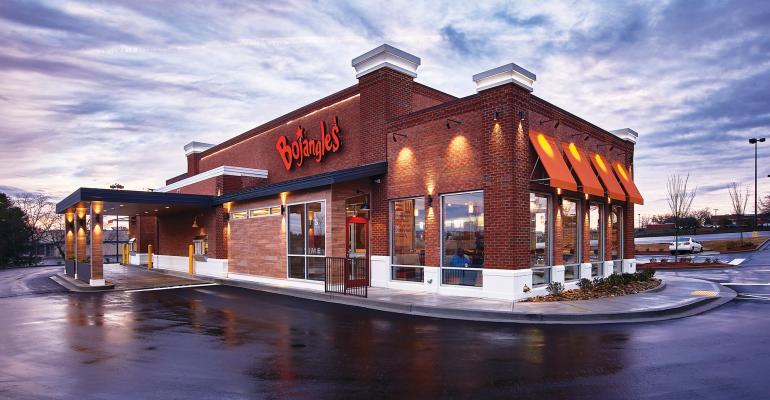Bojangles has tried to establish a firm footprint outside of its core Southeast U.S. markets before throughout its nearly 50 years. In the 1980s, the chain broadly expanded to areas throughout the Midwest, Northeast and West, but eventually abandoned that strategy and shuttered those locations. In 2014 and 2015 – when the chain went public – Bojangles targeted new markets again, this time ones that were adjacent to its core markets.
Bojangles went private in late 2018 and has since grown its sales by over 37% and its unit count by nearly 8% to over 800 restaurants, according to Technomic Ignite data. Though the chain has a presence in 17 states, most of those units remain in its core Southeast region, with its biggest representation in Georgia, North and South Carolina, Virginia, and Tennessee. Now, however, the company is ready to plant its flag elsewhere – again.
During the “Ground-Breaking Growth” panel at this week’s Restaurant Leadership Conference in Phoenix, CEO Jose Armario told moderator Jonathan Maze, editor-in-chief of Restaurant Business, that the goal throughout the next three to five years is to “grow, grow, grow.”
“When I joined five years ago, we had an opportunity to figure out how to grow outside of the traditional markets we were in,” he said. “We started to study that carefully and decided to go with a more streamlined menu for growth.”
In other words, Bojangles’ targeted markets like Los Angeles, Phoenix, Ohio, Utah, Nevada, and Colorado will feature a pared down menu, while its core markets will continue with its traditional menu. That traditional menu is fairly robust, with three sandwiches, all-day breakfast including biscuit combos, family meals, dinners with bone-in options, 10 individual options, three kid’s meals, nine sides, and two desserts. We know new markets will feature boneless products at the very least.
“The reality is you don’t want to change the brand where it is, but when you go to a new market, what customers still want to experience is great chicken, biscuits, and tea. In existing markets, the top two selling (items) happen to be boneless products, so we’re taking that pared down menu and boneless menu outside and it still capitalizes on what Bojangles is known for,” Armario said.
Bojangles is actively seeking multi-unit franchisees to support its expansion plan, which exceeds 1,000 units and includes non-traditional locations such as travel centers and universities. Armario said the company has been disciplined around real estate selection, franchisee selection, franchisee training, and marketing to execute this plan. Most recently, the company signed franchisee deals in Phoenix for 20 units and Los Angeles for 30 units. That latter deal comes despite some companies pulling back on their expansion plans in California in light of the state’s new $20 QSR minimum wage. Armario is undeterred.
“We’re all looking at different things on how to manage labor more efficiently through kitchen design, through AI … We launched AI in the drive-thru last year, and we’ve been very happy and have seen an average check increase,” he said.
The AI system, called “Bolinda,” has been one of the company’s most dependable employees, Armario added.
“She shows up every day on time, she doesn’t ask for a break. She’s become quite the asset,” he said.
Bojangles remains focused on its existing employees as well.
“We’re finding ways to get creative to keep employees motivated, having a development plan for their growth,” Armario said. “Sharing better benefits with them while being more efficient in restaurants are ways to make it happen for Bojangles.”
Contact Alicia Kelso at [email protected]





